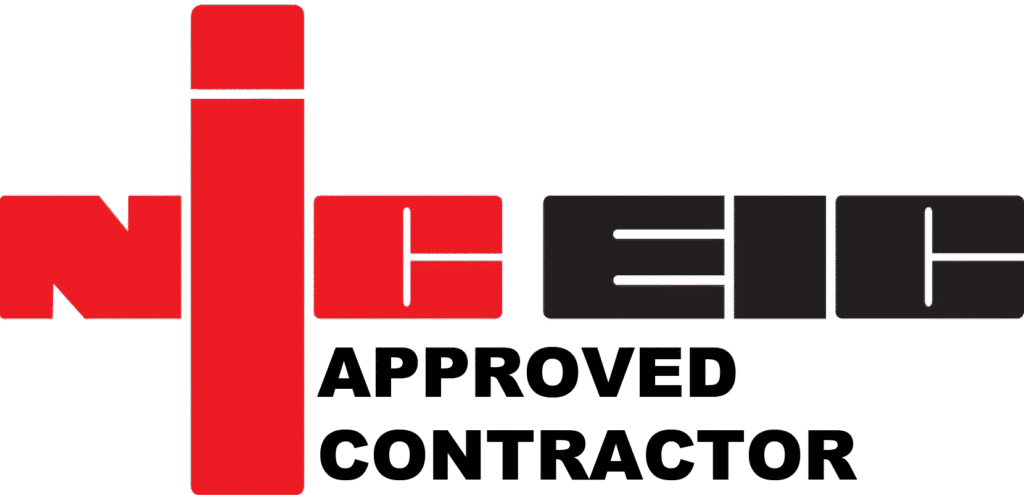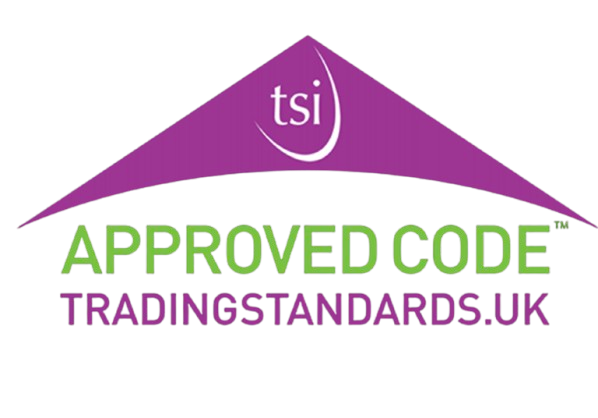What is the best heating solution for my home?
Choosing the Right Heating System:
Comparing Costs, Efficiency, Durability, and Sustainability
When building a new home or upgrading your current heating system, choosing the right solution is critical for both comfort and sustainability. Today’s homeowners have several options, each with its own benefits and drawbacks. In this blog, we compare popular heating systems such as fossil fuel boilers, electric heaters, and air source heat pumps, to help you decide which is best for your needs, focusing on efficiency, sustainability, costs, and durability.

Efficiency
Efficiency is a key factor in selecting a heating system, impacting both environmental footprint and energy bills. A more efficient system converts a higher percentage of energy into useful heat, which means less waste and lower costs. Here, we compare the efficiency of fossil fuel boilers, electric heaters, and air source heat pumps to see which offers the best performance for your investment.

- Fossil Fuel Burners
Efficiency rates vary between 60% and 90%, with newer models on the higher end but still losing energy through exhaust gases.
- Electric Heaters
Near 100% efficiency at the point of use, but overall efficiency depends on the electricity source, which may not be sustainable.
- Air Source Heat Pumps
Exceptional efficiency, often exceeding 300%. This means they produce more heat per unit of electricity than other systems, using energy extracted from the air.
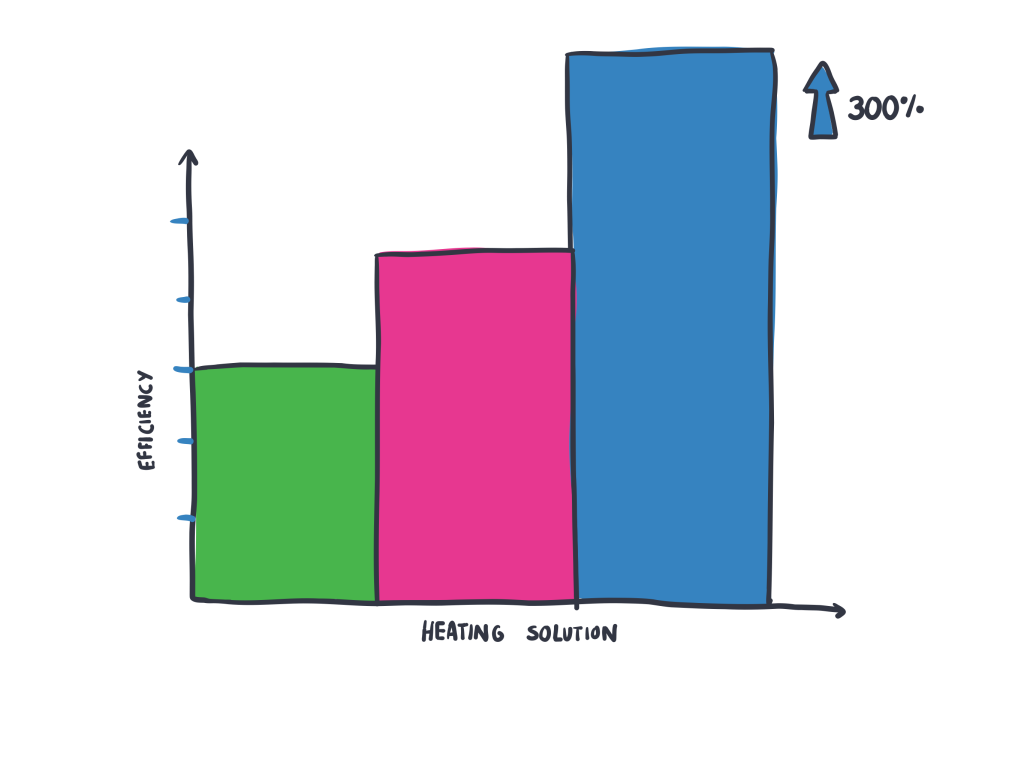
Sustainability
As environmental concerns continue to grow, the sustainability of a heating system is becoming a crucial consideration for many homeowners. This section examines the environmental impact of each heating option, focusing on carbon emissions and the ability to integrate with renewable energy sources. Understanding these factors will guide you towards making a responsible choice that aligns with global sustainability goals.

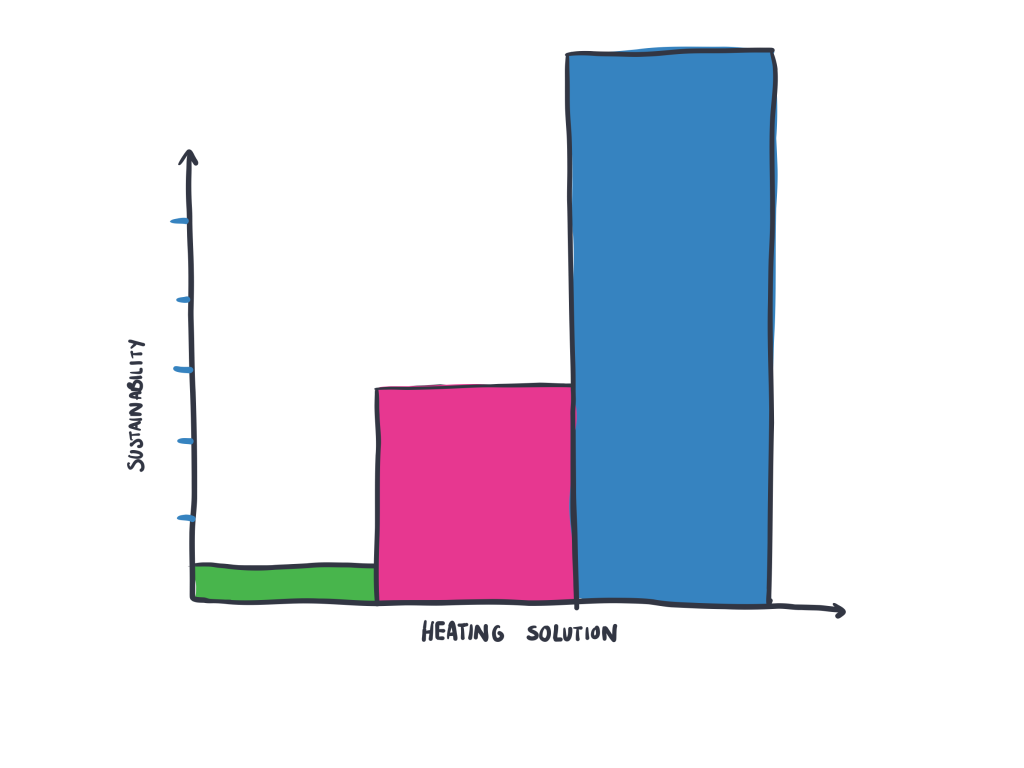
- Fossil Fuel Burners
Contribute significantly to household carbon emissions, which is increasingly problematic from a regulatory and environmental perspective.
- Electric Heaters
Sustainability depends on the source of electricity. If it’s from fossil fuels, the benefits are negated. However, if powered by renewable energy, they can be a greener choice.
- Air Source Heat Pumps
Use renewable energy from the air, dramatically reducing carbon emissions compared to fossil fuel-based systems. They are compatible with solar panels to further decrease carbon footprints.
Costs
Understanding the financial aspects of heating systems is crucial when choosing the best option for your home. Installation, running, and maintenance costs can vary widely between systems. While some may offer lower upfront costs, their long-term operation and upkeep could be more expensive, impacting your overall budget. We’ll delve into these cost elements to help you make an informed decision.

- Fossil Fuel Burners
- Installation: Generally less expensive than ASHPs but can vary based on whether you need a new tank.
- Running Costs: Highly dependent on volatile fuel prices, which can fluctuate significantly.
- Maintenance: Requires annual servicing and potential replacement of parts, which adds up over time.
- Electric Heaters
- Installation: Low initial costs and easy installation.
- Running Costs: High, especially in colder climates due to less efficient whole-home heating capabilities.
- Maintenance: Minimal; no moving parts reduce the frequency and cost of maintenance.
- Air Source Heat Pumps
- Installation: Higher initial investment but often offset by government rebates and incentives.
- Running Costs: Significantly lower than both fossil fuel boilers and electric heaters due to higher efficiency.
- Maintenance: Comparable to fossil fuel systems but generally lower due to fewer mechanical stresses and a cleaner operation.
Durability
The lifespan of your heating system not only affects its cost-effectiveness but also the frequency of replacement. Durability varies significantly among different types of heaters, influenced by factors such as design, installation quality, and regular maintenance. We will explore how the longevity of each system can affect your decision in the long run.

- Fossil Fuel Burners
Typically last 10-15 years, depending on maintenance and quality of installation.
- Electric Heaters
Can last over 20 years due to fewer moving parts but are less suitable for primary heating solutions in colder regions.
- Air Source Heat Pumps
Usually have a lifespan of 20-25 years, benefiting from advancements in technology and durability. Proper maintenance can extend their life further.
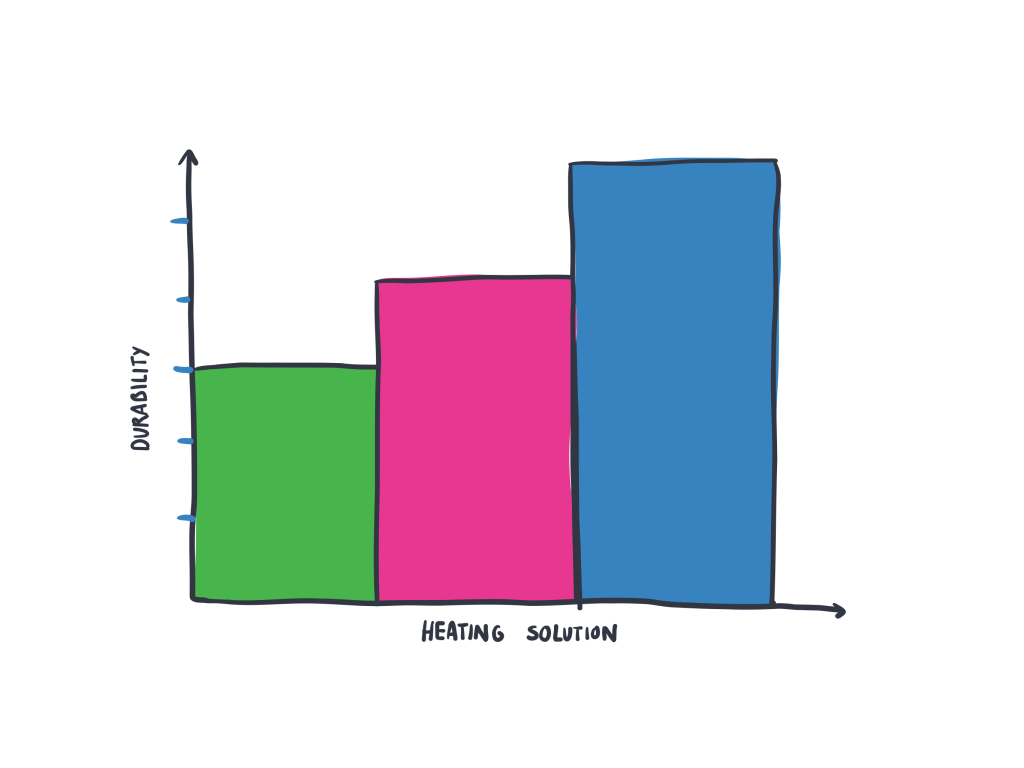
Conclusion
For new build properties or homeowners transitioning from fossil fuel boilers, air source heat pumps present a compelling case. They offer superior efficiency, impressive sustainability credentials, and long-term cost savings. By choosing an air source heat pump, you are not only investing in a high-performance heating solution but also contributing to a more sustainable future.
As regulations and incentives increasingly favour renewable heating technologies, Air Source Heat Pumps stand out as the optimal choice for those committed to building eco-friendly, energy-efficient homes. Whether you’re updating your current system or starting anew, an air source heat pump provides a forward-thinking approach to home heating that aligns with both environmental goals and modern living standards.
Interested in going green? Contact Wilsons today to organise a quote for your new air source heat pump.





